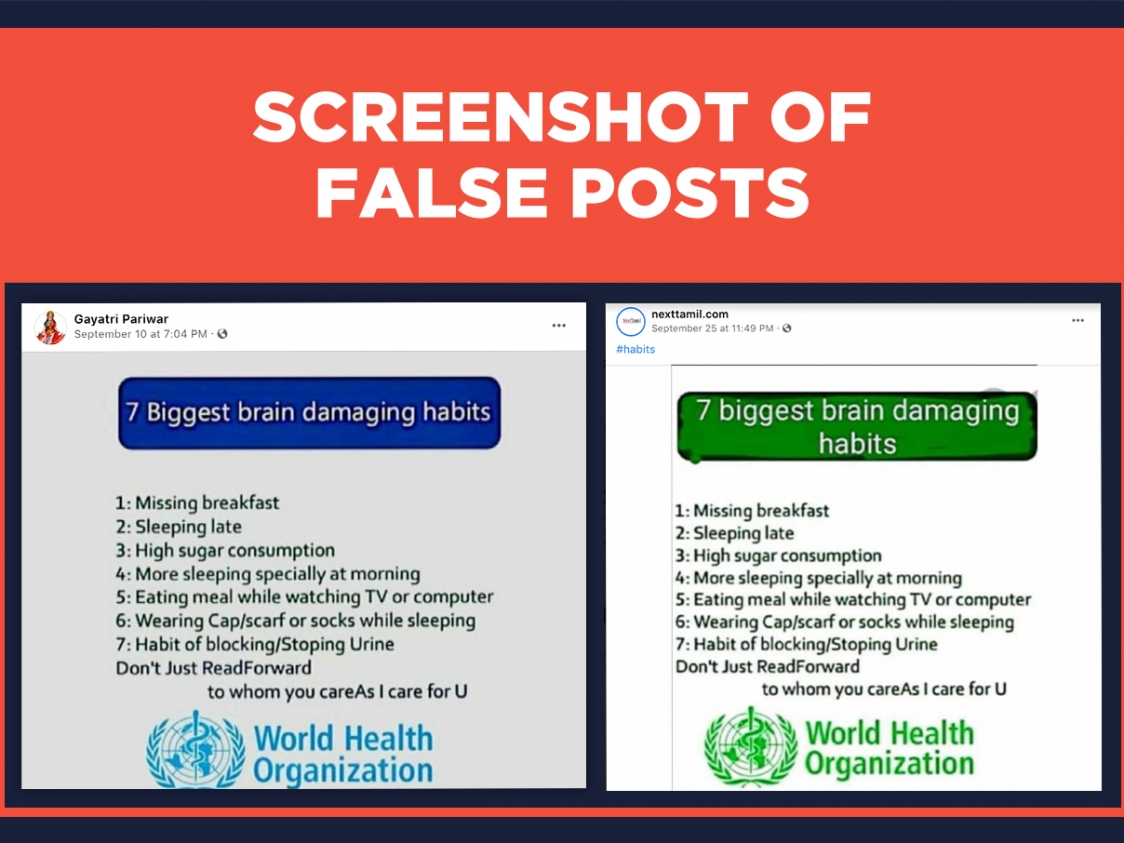SUMMARY
This is AI generated summarization, which may have errors. For context, always refer to the full article.

Claim:
The World Health Organization (WHO) released an infographic on the “7 biggest brain damaging habits.”

This claim was flagged by Facebook Claim Check, a tool that detects potentially false information on the platform. At least 11 posts in the past month contained this infographic, as spotted through social media monitoring tool CrowdTangle. Overall, these posts gained 1,750 reactions, 38 comments, and 948 shares as of writing.
Rating: FALSE
The facts:
The infographic did not come from the WHO. According to the WHO, these habits are not shown to cause brain damage.
A Healthline article says brain damage occurs when one’s brain is injured either due to a traumatic injury, such as a fall or a blow to the head, or a non-traumatic injury, such as drug overdose or a seizure.
The supposed infographic, which contained the WHO logo, listed the following habits as brain-damaging:
- Missing breakfast
- Sleeping late
- High sugar consumption
- More sleeping, especially in the morning
- Eating meals while watching the TV or computer
- Wearing a cap, scarf, or socks while sleeping
- Habit of blocking or stopping urine
WHO Philippines refuted the claim. “The infographic ‘7 biggest brain damaging habits’ did not originate from the World Health Organization (WHO). Missing breakfast, sleeping late, high sugar consumption, sleeping in the morning, eating while watching TV or on the computer, wearing clothing while sleeping, holding in urine are not shown to cause brain damage. It is beneficial for your general health to maintain a balanced diet, stay well hydrated, exercise regularly and sleep well,” WHO Philippines told Rappler in an email.
This claim has also been fact-checked by Factly and The Quint.
Some of the habits listed may have other negative effects on health, but studies and reports on these habits showed effects not directly related to brain damage. For example, distracted eating may lead to increased intake, insufficient sleep is linked to certain chronic diseases, and the effects of sugar on the brain may be most marked in diabetes.
In the past, Rappler debunked another fake photo attributed to WHO, which claimed to show protocols for lockdown periods. – Loreben Tuquero/Rappler.com
Keep us aware of suspicious Facebook pages, groups, accounts, websites, articles, or photos in your network by contacting us at factcheck@rappler.com. Let us battle disinformation one Fact Check at a time.
Add a comment
How does this make you feel?
There are no comments yet. Add your comment to start the conversation.